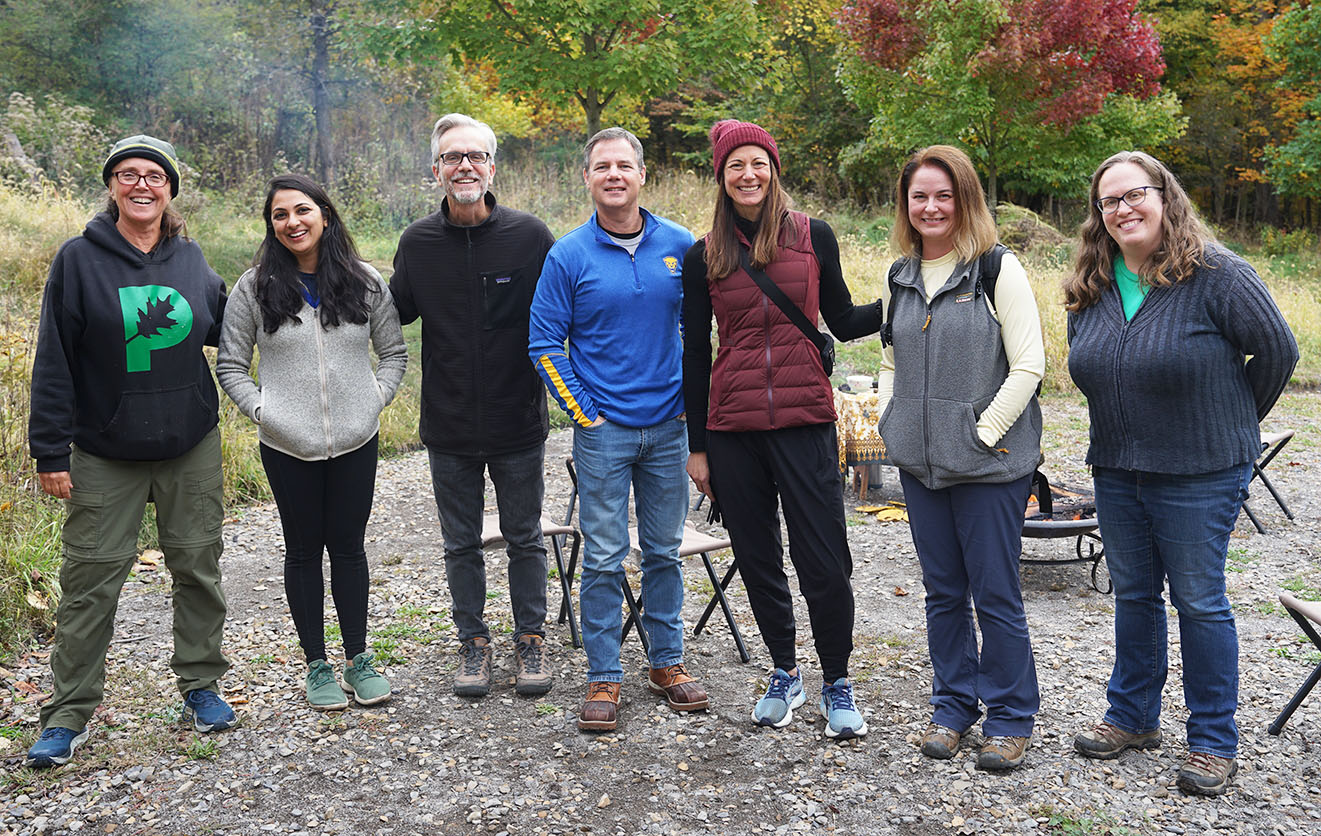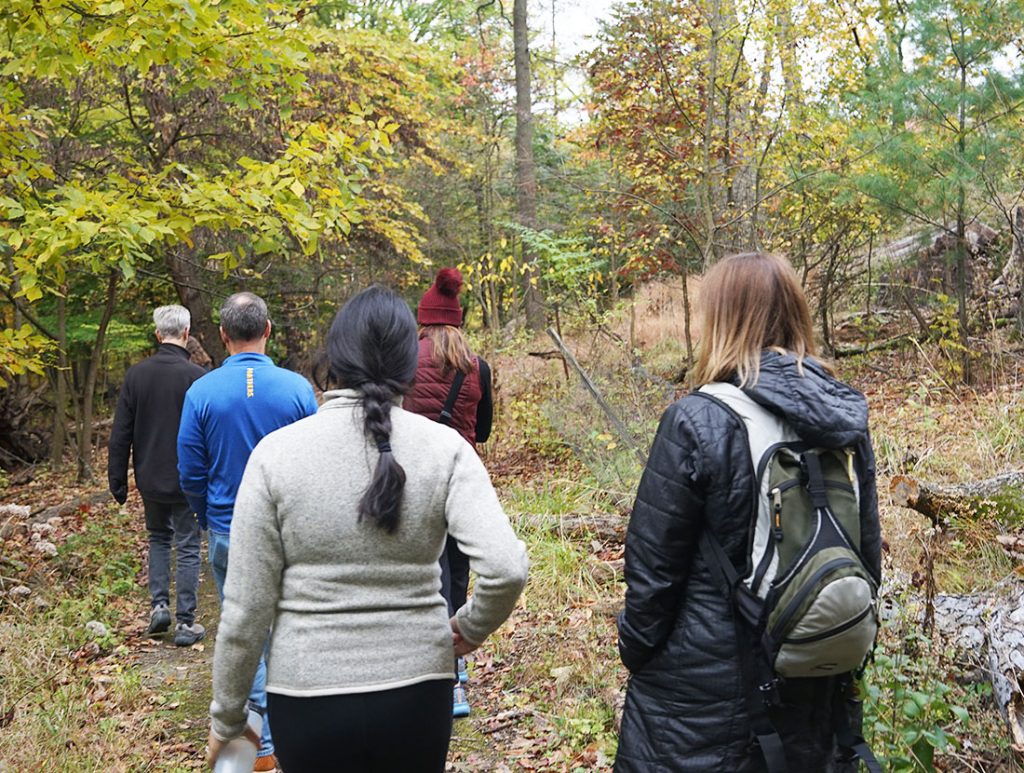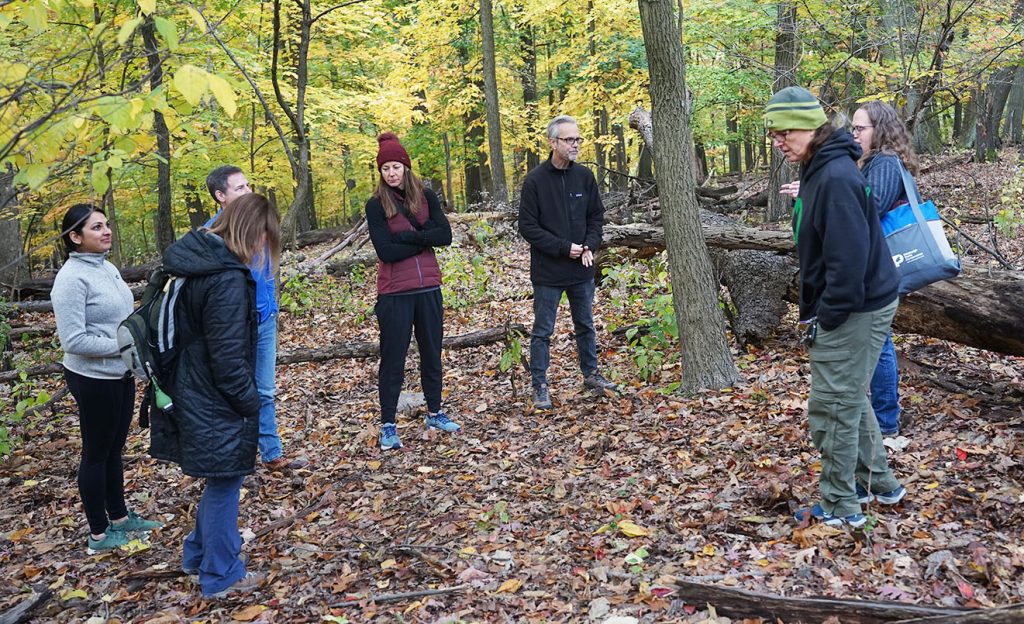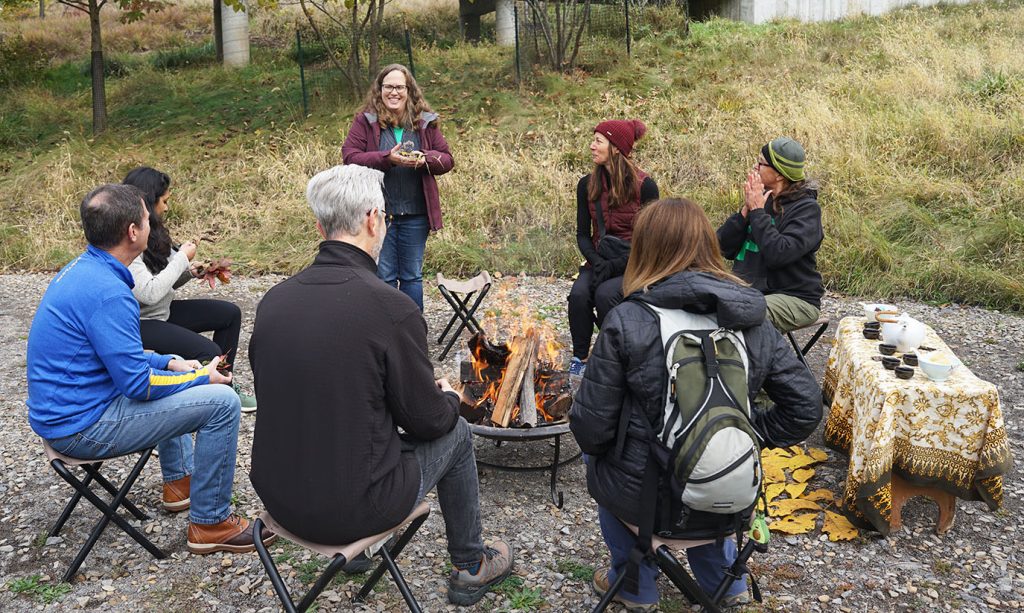
When Cassie Quigley, a Department Chair in the University of Pittsburgh’s Department of Teaching, Learning, and Leading, mentioned forest bathing to Tom Ralston, he admitted that he didn’t know what it was.
Upon some explanation, he knew it would be a perfect social and emotional focus not just for staff wellness, but also a potential catalyst for future outside partner relationships. Ralston is an assistant professor and director of the Forum for Western Pennsylvania School Superintendents at the University of Pittsburgh, and one of Pitt’s main points of contact in relation to Project SEEKS SES, a wide-ranging grant partnership between the AIU, ACHD and local school districts and universities that supports school districts in addressing social and emotional health and looks to bolster a local pipeline of professionals to supporting fields.
So, with the help of Project SEEKS SES funds, Ralston, Quigley and numerous other Pitt staff members went for a forest bathing workshop on October 18. The workshop took place at Frick Park and was directed by members of the Pittsburgh Parks Conservancy.
“When the grant came my way, I started spreading the word through the department about wanting to look for creative programming that touched the social and emotional piece that the grant is really focused on,” Ralston said.
“As a faculty that are teaching teachers and future educators in general, we need to have that social and emotional disposition ourselves. It’s important that we are learning about this and incorporating it into our programs.”
So what is forest bathing? In a nutshell, forest bathing encourages participants to get in nature and slow down. Through a number of activities, participants find their way of connecting with nature, relaxing and taking in the sights, sounds, smells and textures of the forest. In the fast-paced nature of education, Ralston admits that a break from the rush was definitely needed.
“I think we’ve talked about the toll that the pandemic took on folks, and I still think there are some residual effects. In addition to that, we’ve had a lot of changes in our department, and it’s caused some stress,” Ralston said. “So I think it’s really important for folks to take care of themselves, so they can be the best they can be for their students.”
While walking in the forest was nothing new for Ralston and his colleagues, the manner in which they approached it on that day was. Through slowing down and taking it in, Ralston said he was able to see the park and nature in a different light.
“I think I was able to slow down and notice things. Senses are great triggers for us. They’re triggers for us to nostalgia and sentimental memories of the past. And I think it also enables us to wonder and to see,” Ralston said. “As a former science teacher, I’m always amazed that the things that are ordinary for us, we don’t necessarily take the time to really look deeper and slow down and look at them more intently and see the wonder of nature.”
Ralston said he’s looking to schedule another forest bathing workshop in the spring, but these efforts are more than just a staff wellness initiative. The initiative also fits into the Allegheny County Health Department’s (ACHD) “Plan for a Healthier Allegheny,” which states “people of all ages engage in behaviors that promote physical health and reduce the risk of chronic diseases” as one of its goals. As part of that goal, the ACHD lists increasing access to outdoor or indoor walking paths as one of its strategies.
Ralston, too, is a big proponent of outdoor activity and learning, citing numerous studies on how views of the outside or outside classrooms can be beneficial. He hopes that he and his colleagues can impart that on the future educators that they oversee.
Additionally, Ralston is looking to partner with other outside organizations, so that students can learn from other experts, and impart lessons they learn into their future teachings.
Among other organizations, Ralston said he’s planning partnerships with Attack Theatre, a local company that promotes learning through dance and movement, as well as The Mentoring Partnership of Southwestern PA, a local organization that “champions strong, supportive relationships for all young people,” according to their website.
”I’m hopeful that through the partnership with Frick and forest bathing program, that we continue to do that, but I’m also hopeful that that continues to be something that our faculty embraces in all the programs that we partner with,” Ralston said. “We have certain expertise as educators, but we raise the value of an experience for our students when we are able to bring in specific experts who have a level of knowledge and expertise in an area that we don’t have.”



